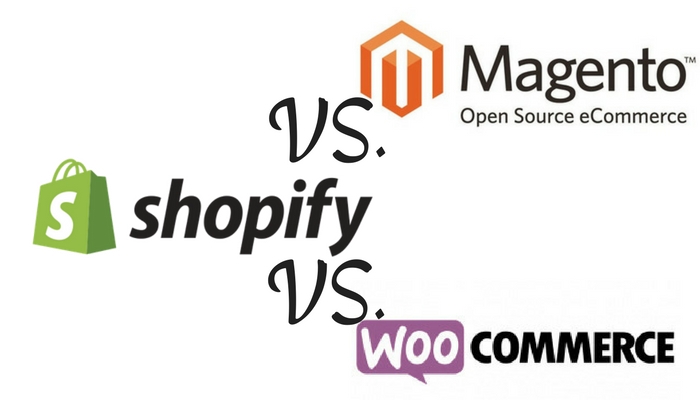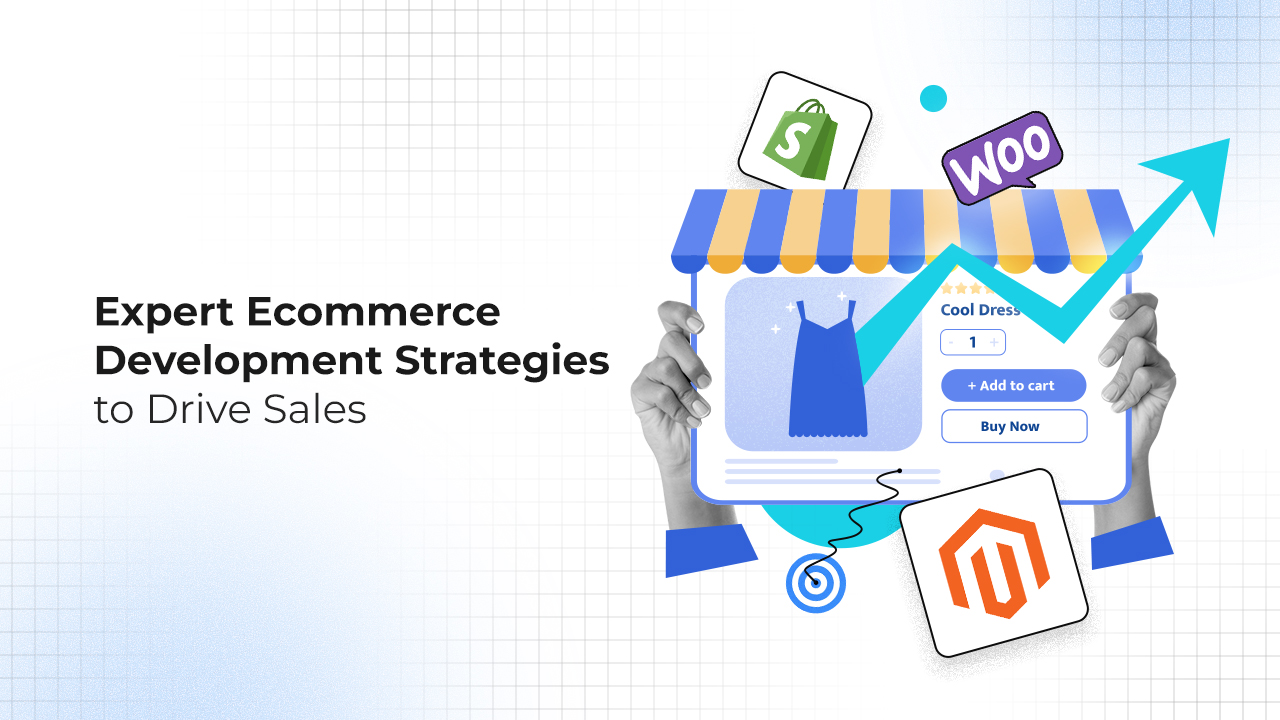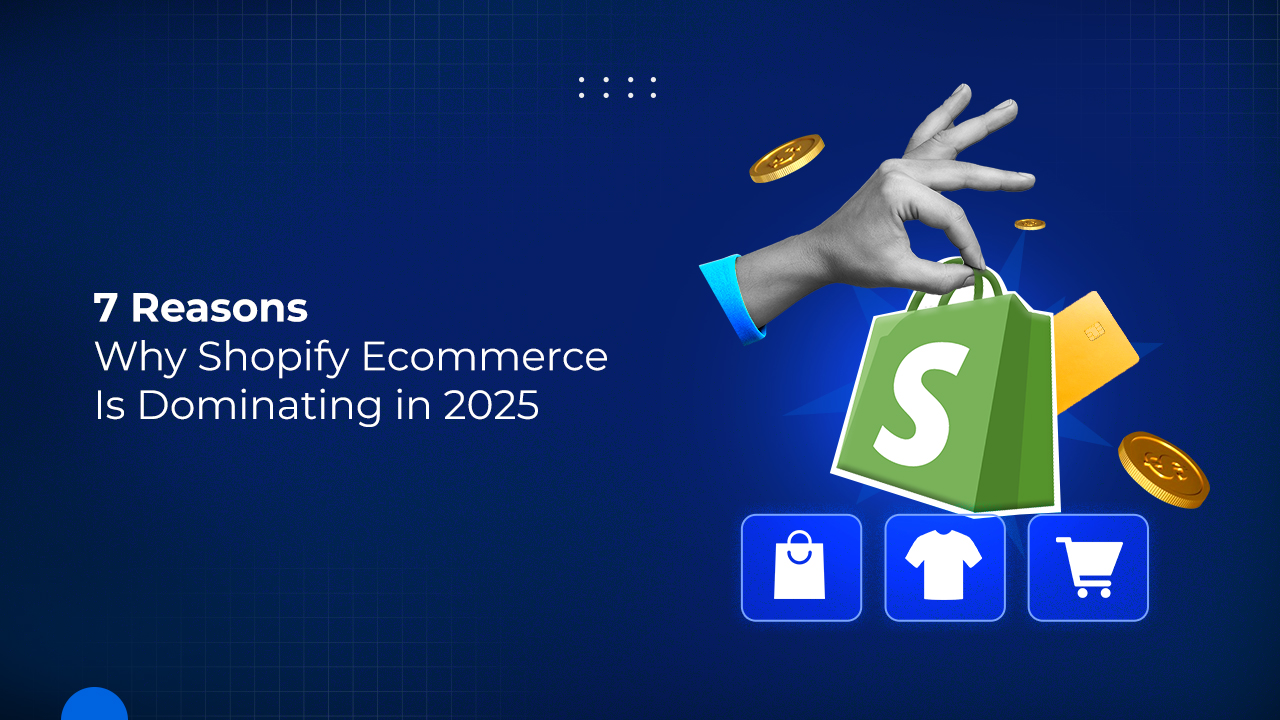
Shopify, Magento Or WooCommerce- Best For Ecommerce?
You might be wondering why on earth we are comparing Shopify vs Magento vs WooCommerce?
Well, it is not unknown to people that Shopify, Magento, and WooCommerce are the popular solutions for eCommerce website development. If calculated these three platforms together, there are more than 2.5 million online stores they run.
With these scalable, functional, nice design providing platforms, one can easily build an eCommerce site even without having any prior experience in this very field. Because of these particular reasons, all of them are the leaders.
However, these platforms are very different in their structures. So far, we have created a bunch of eCommerce resources, but none of them experienced any specific differences betwixt Shopify vs Magento vs WooCommerce.
There are certain questions that are hovering around the market including…..
- Which is the best platform to fulfill your requirements?
- Which platform is the most flexible one?
- Which is the easiest to use and manage?
- Which one is cheaper and easy to maintain?
- Which platform is able to support your organizational growth plan?
In general, when it comes to “visual” and “easy to grasp”, deciding the best among these three is quite tricky and doing this in a perfect way, an infographic is the best way of killing two birds with one stone easily.
To bring some ease in the process, here is a comparison we have done of Shopify vs Magento vs WooCommerce.
The following comparison has been done based on recent research conducted by ThemeIsle.com for studies. Let’s dig into the comparison to decide which one to choose.
Shopify vs Magento vs WooCommerce
It is not possible to make a chart and point out the compatible and not-compatible platform for your eCommerce development. A simple break down of each platform will be helpful to highlight the strengths and weaknesses of the platforms. And this is helpful for you as well while choosing a perfect platform for your business.
Shopify, Magento, and WooCommerce are the most popular and run the majority of top eCommerce websites on the internet and there are good reasons behind that. Shopify has more than 800,000 active online stores, WooCommerce has over 3 million active stores, and Magento has over 500,000 websites.
Shopify
Shopify was launched in 2009 and is possibly one of the most known eCommerce solutions. This platform is easy to use and with this, users are able to get started quickly as this platform is a completely hosted solution. Shopify is basically popular with smaller eCommerce brands, but there is nothing to stop it from scaling with a growing enterprise.
Shopify comes with a monthly plan starting at $29 for basic Shopify, for Shopify plan users have to subscribe with $79, and for advanced Shopify, $299 is the plan price. The plans are comparatively low and this is the major difference.

It offers options like adding more staff profiles, professionals’ reports, and creating gift cards. For more flexibility and scalability, Shopify Plus is the perfect suit based on your requirements.
Shopify Strengths
- Shopify is the eCommerce first platform.
- It comes with easy usage and navigation.
- Apps installation is also easier for additional functionality.
- Theme set up is also simple.
- Development time is comparatively short.
- It has hosting and SSL certifications.
- Offers 24 / 7 support via online, mobile and email.
- Generates sell across Facebook and Instagram.
- Automated abandonment of cart emails.
- The mobile apps are robust.
- Synchronizing physical shop sales along with online sales can be done using Shopify POS.
Shopify Imperfections
- It lacks complete flexibility.
- It has weak content management capabilities if compared to others.
- Users have to subscribe monthly to use Shopify.
- If used third-party payment gateways, then the additional transaction is added.
- It has a credit card rate of 1.6% – 2.2% + 20p.
Popular Brands That Are Using Shopify
- Tesla,
- Red Bull,
- KKW Beauty,
- Kylie Cosmetics,
- Penguin, and
- Gymshark.
WooCommerce
WooCommerce is built on top of WordPress and was launched in 2011. WooCommerce works as a plugin and it enables running an online store along with all the WordPress functionality.
When it comes to building an eCommerce store online, WooCommerce is a popular choice because of the WordPress familiarity. It has a wide range of themes to offer its users and it has a free installation option.
Strengths WooCommerce Has
- It offers a good system for content management or it can be said that it has CMS capabilities.
- It provides complete control of base codes which is important for required customization.
- It’s free to download.

- Holding a huge catalogue of plugins for additional required functionality.
- It helps easy integration with WordPress.
Drawbacks Of WooCommerce
- It comes with a long development time.
- There’s a risk of using a bad developer.
- It’s not an eCommerce first platform.
- It requires hosting and SSL certification.
- Its support is only available from the plugin developer or from the community.
- Its plugins require constant updates and for the core software in order to stay secure.
- There can be plugin conflicts.
- It almost completely depends on the developers to maintain and bring improvement over time.
Brands That Are Using WooCommerce
- Airstream,
- Singer,
- All Blacks, and
- Webber.
Magento
Magento was launched in 2008 and is a corporate level eCommerce solution developed for basically web developers and large online eCommerce stores. It’s scalability, functionality and reliability have made this platform a popular choice for larger organizations.
Magento has an edition for its community that is free to install and it offers community-based assistance. Another edition is named Magento commerce which is a cloud offering and the enterprise version that has been designed for larger retailers. It offers superior technical assistance with a wide range of features and extensions.
Magento Strengths
- It is an eCommerce first platform.
- Superior scalability with good integration.

- It has a good product catalogue with highly efficient order management.
- It is prominent in handling large-sized SKU counts.
- Offers multistore on a single installation.
- Potential of offering good flexibility and core functionality.
Magento Drawbacks
- Ownership is very much expensive.
- It requires hosting and SSL certifications.
- It offers poor speed for sites and has a steep learning curve.
- It has a complicated set of themes to implement and the developers are also expensive.
- There is a risk of using bad developers.
- It takes more than enough time for development.
- Only the free community edition offers community-based support.
Brands Using Magento
- Budweiser,
- Coca-Cola,
- Christian Louboutin,
- Ford, and
- Olympus
Discussion
Basically, the dream or goal of every business is to sell all the products from a safe and secure platform which is less complicated. The platform requires to be less complicated as it is important to serve the customers with ease which is the only way to grow business effectively.
To compete in this digital world, one is required to come up with an amazingly designed and easy to use online store. In accordance with the organizational budget, requirements, and other conceptions, choosing an eCommerce platform comforts users because whether it is about boosting sales up or losing customers generally depends on the decision entrepreneurs make.
While launching an online business, there are plenty of things that require one’s attention. The platform has to be safe and worthy that is functional. A functional platform is necessary for features like easy installation, customization, and maintenance services.
Various platforms are available in the market and those create confusion for the eCommerce business entrepreneurs because every single platform is designed with comfort and some uniqueness.
We have tried to explain the features, uniqueness, and drawbacks Shopify, Magento, and WooCommerce have. The basic features of any eCommerce development platform is to build a store which will have easy to manage features essential in working off that site.
On average, developers and organizations look for a powerful platform that is easy to use and is able to bring life to their imaginations. In order to find a platform like that requires great research and at an affordable price range for a monthly subscription. Every single platform has its own pros and cons, but users have to choose any of them that is able to fulfill the requirements they have.
If you are keeping in mind the requirements you have from the platform wisely, then that will surely help you attain success. We have included a few questions at the starting of this blog. Whenever you feel in doubt, you can easily get those questions reminded and finalize your preference.

 Ecommerce Development
Ecommerce Development 













